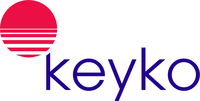@keyko-io/multisigwallet
v0.2.0
Published
Ethereum MultiSignature Wallet. Main module, for installing all dependencies
Downloads
2
Readme
Ethereum Multisignature Wallet
MultiSigWallet forked from Gnosis
The purpose of multisig wallets is to increase security by requiring multiple parties to agree on transactions before execution. Transactions can be executed only when confirmed by a predefined number of owners. A web user interface can be found here.
Features
- Can hold Ether and all kind of tokens with multisig support
- Easy to use offline signing (cold wallet) support
- Integration with web3 wallets (Metamask, Mist, Parity, etc)
- Transaction data and log decoding, makes transactions more readable
- Interacting with any contracts with UI support
- Hardware wallet support (Ledger Wallet)
- Optional email notifications when an event is triggered or you are required to sign a transaction
Being used by
Install
git clone https://github.com/keyko-io/nevermined-multisigwallet.git
cd nevermined-multisigwallet
npm installTest
Run contract tests:
npm testRun interface tests:
npm run test-dappDeploy Contracts
Deploy multisig wallet:
truffle migrate <account1,account2,...,accountN> <requiredConfirmations>Deploy multisig wallet with daily limit:
truffle migrate <account1,account2,...,accountN> <requiredConfirmations> <dailyLimit>Deployed instances with significant funds
- Aragon 0xcafe1a77e84698c83ca8931f54a755176ef75f2c
- Bancor 0x5894110995b8c8401bd38262ba0c8ee41d4e4658
- Golem 0x7da82c7ab4771ff031b66538d2fb9b0b047f6cf9
- MysteriumDev 0x7e6614722614e434c4df9901bab31e466ba12fa4
- District0x 0xd20e4d854c71de2428e1268167753e4c7070ae68
Interface Releases
You can find binaries for OSX, Windows and Linux here
Limitations
This implementation does not allow the creation of smart contracts via multisignature transactions. Transactions to address 0 cannot be done. Any other transaction can be done.
Security
All contracts are WITHOUT ANY WARRANTY; without even the implied warranty of MERCHANTABILITY or FITNESS FOR A PARTICULAR PURPOSE.
License
FAQ
How to set a custom Ethereum Node?
You can specify a custom Ethereum Node endpoint by going to settings page. Click on Ethereum Node dropdown menu and select Custom configuration, this would make the Ethereum node's field editable. Please write your new endpoint there. Remember, if Web3 Provider is set to Default (Metamask, Mist, Parity), Multisig will use the Ethereum Node endpoint coming with the Web3 Provider, so in that case go to your injected Web3 Provider (Metamask for instance) and update/switch your Ethereum Node endpoint.
I've imported a Multisig address or a contract address into address book but it gets detected as a EOA
Make sure you're connected to the same network your Multisig/contract was created on, if you created it on Mainnet, you should then connect to Mainnet in order to let the system detect its type correctly.

